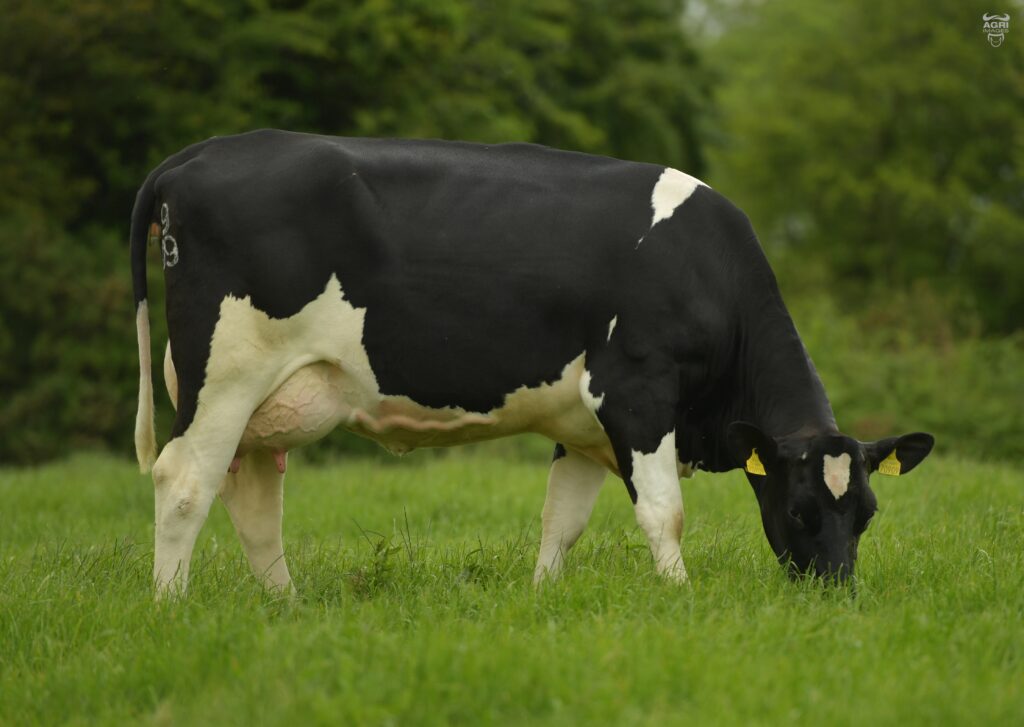Changes to the nitrates regulations mean that from the start of 2023, the organic nitrogen (N) excretion rate given to dairy cows is now based on their herd’s average milk yield/cow.
These changes to the nitrates regulations are called ‘banding’.
Prior to the introduction of banding, each dairy cow in the country was assigned a standard figure of 89kg of N/head whereas now, herds will be banded depending on their average milk kg/cow.
The new bands for herds are outlined below:
Bands Milk yields Excretion rate Band 1 <4,500kg of milk 80kg organic N/cow Band 2 4,500-6,500kg of milk 92kg organic N/cow Band 3 >6,500kg of milk 106kg organic N/cow
Breeding 2023
As breeding season 2023 approaches, now is a good time to establish what band your herd will be in and see how this will affect your future breeding decisions.
Just over two thirds of Irish dairy herds are in Band 2.
Remember, there is 1.03kg in 1L, so if your herd averages more than 4,500kg or 4,370L/cow and less than 6,500kg or 6,310L/cow, you are in band two.
For herds that are in band two there is a very small increase (3.5%) in N levels/cow, however for higher-yielding herds in Band 3 there is a bigger increase in N/cow (19%).
This may bring some farms over their relative farm stocking rate limits of 170kg/ha or 250kg/ha N (derogation) limit.
Four-point breeding plan
To help farmers to get a better understanding of the situation on their farm, and to help them achieve their breeding goals, Dovea Genetics has developed a four-point breeding plan:
- Establish your current situation: Find out your herd performance and current genetic position. This information is available for every herd and includes the herd’s main production parameters – kg milk/milk solids, fat percentage and protein percentage. In terms of genetics, it is useful to examine your herd’s Economic Breeding Index (EBI) summary and breeding value summary of the various lactation groups and youngstock groups in your herd. Farmers should analyse their co-op performance and EBI report to help assess their current situation;
- Select the cows you want to breed replacements from:
You should select the best females in their herds to breed replacements from. Along with this, you should identify the cows that you do not want to breed from and assign a beef straw to these cows. These criteria will vary from farm to farm, however every farmer should give extra attention to the cows that have higher kgs of milk solids through higher component percentages; - Select your bull team: When choosing a team, you should choose a group that is higher for the traits that you wish to improve in your herd, i.e. components and solids. It is important to remember that it is possible to increase your farm’s overall kg of milk solids through sires that have high component percentages;
- Match the bull to the cow: Do this using the cows’ performance or genetic data available from the Irish Cattle Breeding Federation (ICBF) Herd Report. Dovea Genetics’ supply sire advice plans and can assist in making these breeding decisions, email Marty Hayes at; [email protected] or by calling; 0504-21755.
Delivering bulls for Band 2
Irelands genetic ‘base cow’ produces 6,044kg of milk. This means the performance of herds with a milk kg of ‘0’ is in the region of 6,044kg of milk/cow.
Farmers in Band 2 breeding females with a milk breeding value of 50kg should provide the right amount of milk while staying under the band’s restrictions.
Bulls at Dovea are selected with a balanced EBI, high percentages, kg milk solids and most importantly, from high protein cows.
Currently, Dovea holds four sires in the top 10 active bulls in the country along with Ireland’s highest EBI bull.
Bulls that reach these criteria are as follows:

For farmers in Band 2 it is important to choose sires that have high component percentages along with high kg milk solids.



In the 2023 Dairy Directory there is also an easy maintenance/high component section available – sexed and conventional.
The highest EBI for maintenance and components sires available from Dovea Genetics are as follows:

For more information on Dovea Genetics’ sires, click here.

